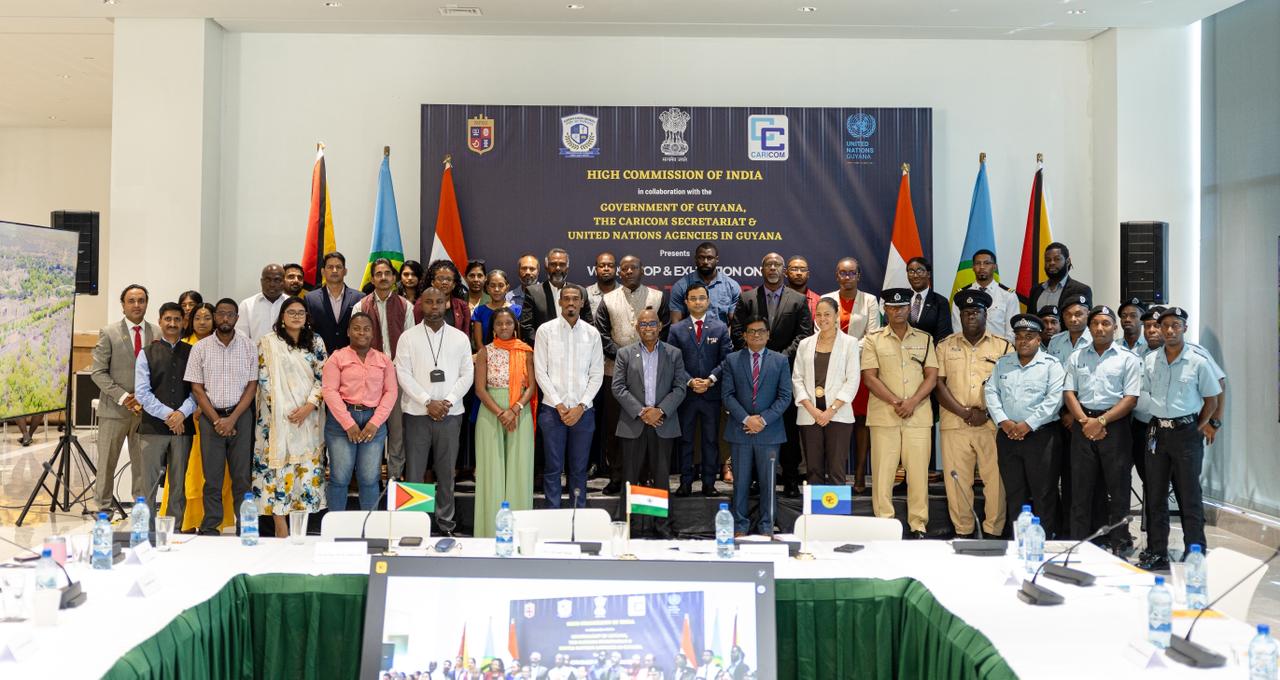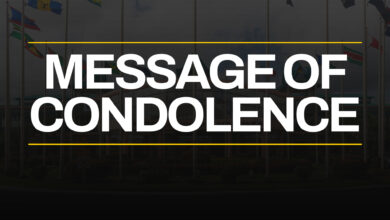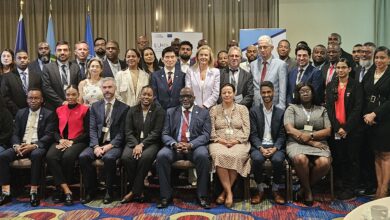(Caribbean Community (CARICOM) Secretariat, Turkeyen, Greater Georgetown, Guyana) – A high-level workshop and exhibition on counter terrorism and law enforcement, convened on Friday, 17 October at the Pegasus Hotel in Georgetown, Guyana, brought together regional and international experts for discussions on strategies to confront the growing threats of terrorism, cybercrime, and transnational crime in the Caribbean.
The event was organised by the High Commission of India in collaboration with the Government of Guyana, CARICOM Secretariat, and United Nations agencies in Guyana. It served as a significant follow-up to the historic visit to Guyana by India’s Prime Minister, His Excellency Narendra Modi, in November 2024 for the Second CARICOM-India Summit.
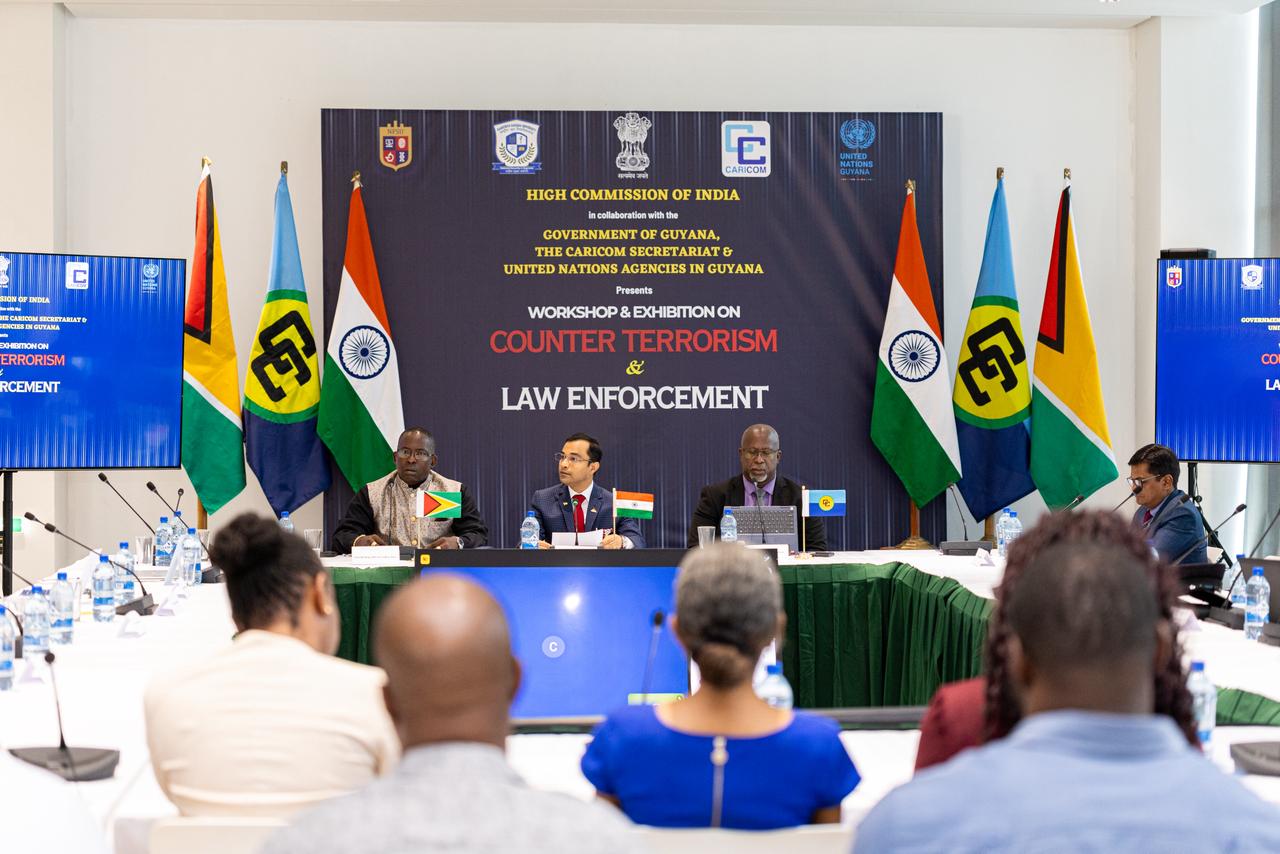
The workshop, which was attended by police officers and high-ranking law enforcement personnel of Guyana, representatives from CARICOM institutions and Member States, featured presentations from leading Indian academic institutions at the forefront of law enforcement capacity building. These included the Rashtriya Raksha University and the National Forensic Sciences University (NFSU).
CARICOM Secretariat’s Programme Manager for Crime and Security, Mr. Sherwin Toyne-Stephenson, in his remarks noted the Secretariat’s readiness to support and cooperate on initiatives aligned to Member States’ priorities.
He reaffirmed the Community’s condemnation of terrorism in all its forms, stating, “It strikes at the very heart of the rule of law and constitutes a significant negative impact to citizen security for our collective populations.”
Mr. Toyne-Stephenson recalled the Region’s painful history with terrorism, including the 1976 bombing of a Cubana Airlines flight and the 1990 coup attempt in Trinidad and Tobago, as stark reminders of the Caribbean’s vulnerability to extremist violence.
In this context, he highlighted the CARICOM Counter-Terrorism Strategy, adopted in 2018 and recently revised, which provides a roadmap for Member States to combat terrorism through strategies focused on prevention, disruption, denial, preparedness, and resilience.
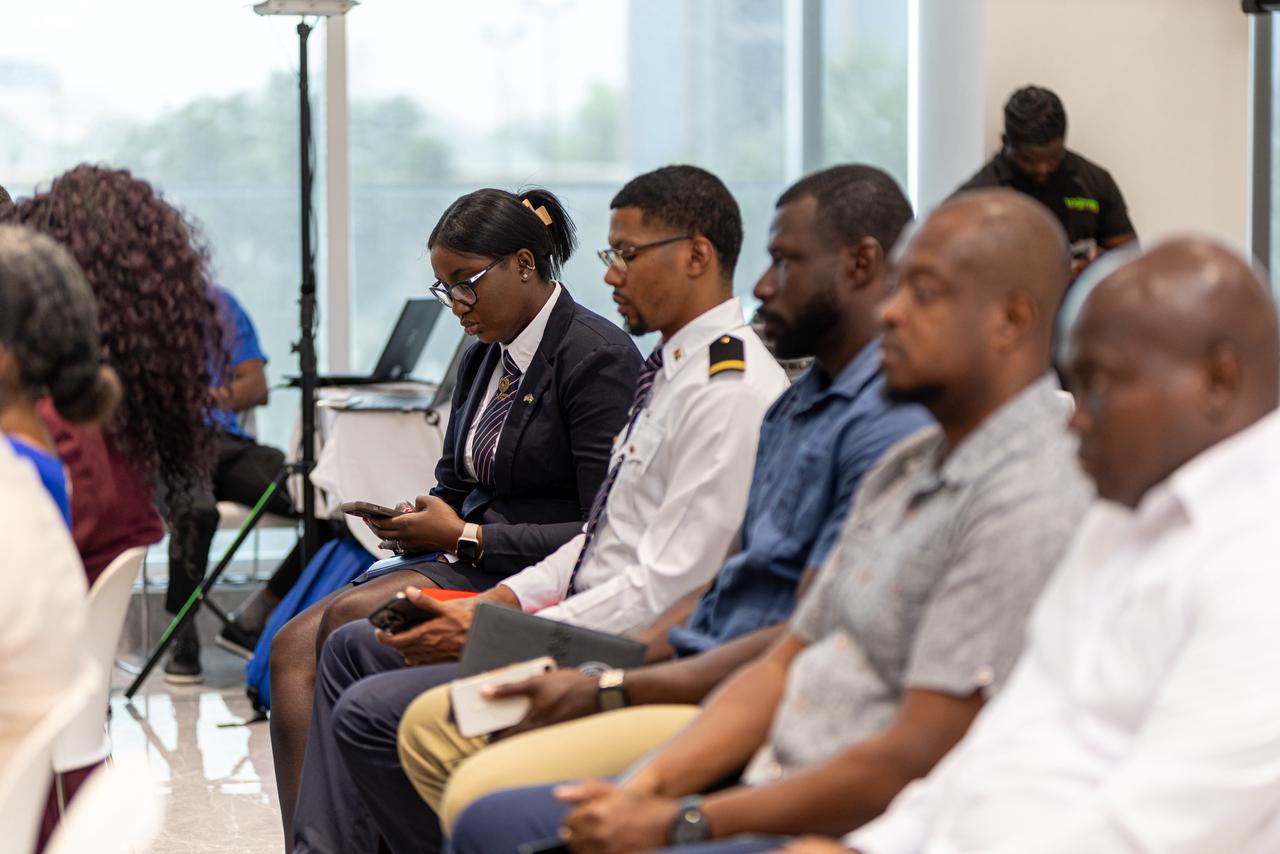
India’s High Commissioner to Guyana and Ambassador to CARICOM, Dr. Amit Telang underscored his country’s commitment to sharing its experiences with the Global South in a spirit of cooperation.
Noting its longstanding ties with the Region, he said India is interested in deepening cooperation in areas such as anti-narcotics, human trafficking, piracy, and illegal fishing. In these areas, he added, the country can offer structured capacity-building initiatives tailored to the specific needs of its partners.
Representing the Government of Guyana, Ambassador and Director of Defence Diplomacy in the Ministry of Foreign Affairs and International Cooperation, Brigadier Ret’d Godfrey Bess, highlighted the evolving regional security landscape, marked by organised crime, cyberattacks, human and narcotics trafficking, and pressing questions surrounding sovereignty, maritime law, and the proportional use of force.
Against this backdrop, he said that the Caribbean must now, more than ever, enhance its capacity to protect its citizens and defend its sovereignty. He also commended India’s role as a “steadfast partner, committed to collaboration.”
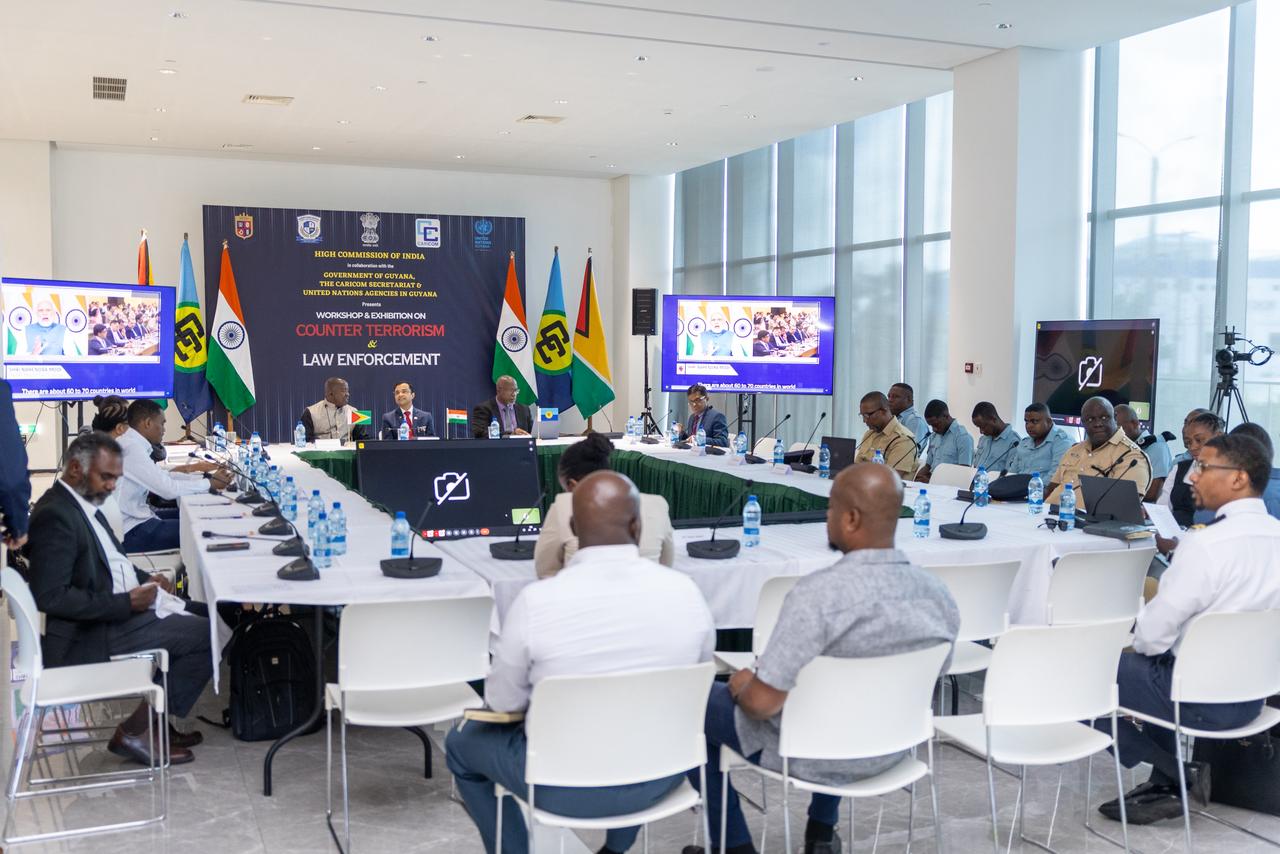
The workshop explored technological and forensic innovations aimed at strengthening regional security.
An exhibition which accompanied the event showcased India’s counter-terrorism efforts and technological advancements in law enforcement, offering participants a hands-on look at innovative tools and approaches.
Professor Dr. Bimal N. Patel, Vice Chancellor of RRU, provided an overview of CARICOM’s mechanisms for countering terrorism, including the CARICOM Advance Passenger Information System (APIS). He outlined India’s strategic approach to counterterrorism, noting the country’s success in reducing incidents through a combination of operational readiness, integrated technologies, and international cooperation.
Dr. J.M. Vyas, Vice Chancellor of NFSU, shared insights into how forensic intelligence can be harnessed to counter terrorism. He discussed advanced techniques such as voice interception, eye detection, brain mapping, and satellite monitoring, which can be used to address complex security issues including money laundering and human trafficking.
Professor Naveen Kumar Chaudhary, Director of Cyber Security at NFSU, examined the dark web’s role in facilitating cyber terrorism. He described it as a “safe haven” for encrypted communications that enable recruitment, funding, and execution of cybercrimes.
He also warned of the rise of offensive AI tools such as deepfakes, misinformation, phishing emails, and malicious AI variants like “fraud ChatGPT,” “poison GPT,” and “wolf GPT.” NFSU, he said, has developed lightweight AI frameworks for dark web monitoring and a new product dubbed “No More Ransomware,” which holds promise for global implementation.

